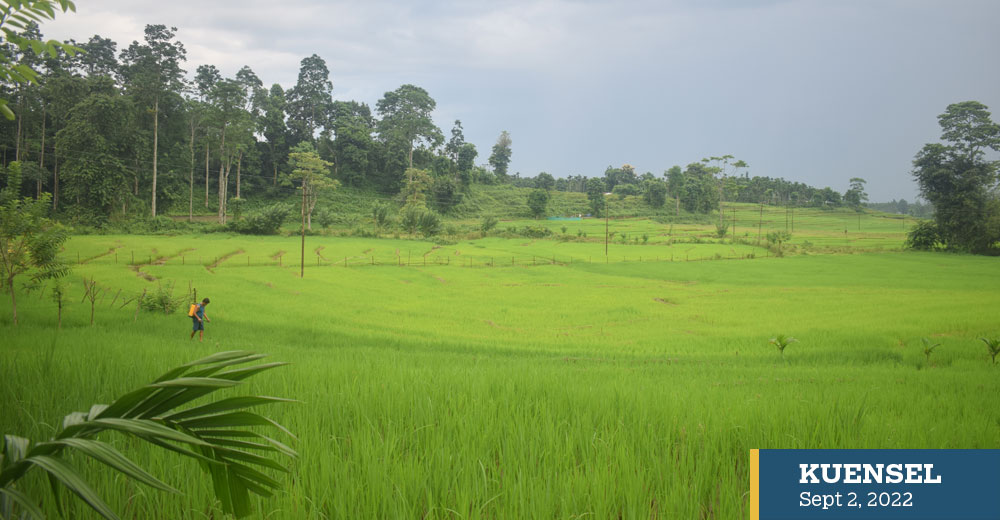Rajesh Rai | Samtse
Thousands of acres of paddy fields are left fallow in Samtse.
So, the dzongkhag administration began leasing of the land left fallow to increase rice production in the dzongkhag.
This year, a total of 170 acres of private land left fallow in Tashichholing (Sipsu) have been leased out.
The dzongkhag agriculture officer (DAO), Chogyal Norbu, said that paddy cultivation has been initiated in close to about 100 acres of land that was left fallow.
“Our aim is to recultivate about 160 acres. But we have to do some land development work.”
Chogyal Norbu said the rest of the land would be developed and readied for winter vegetables.
JK Farming, a private firm, has taken much of the fallow land in Tashichholing to grow paddy. The dzongkhag agriculture office linked JK Farming to over 150 thram holders whose lands were uncultivated.
JK Farming will not have to pay these thram holders for three years.
The dzongkhag administration is helping the commercial farming firm with fencing, irrigation and direct-seeding methods, meaning no labourers were used during the transplantation.
A total of 1,200kg of rice is expected to be harvested from an acre of land.
The assistant agriculture officer NK Acharya also said that another group, Norbu Cooperative, has begun cultivating the land left fallow in Samtse town area. Norbu Cooperative is an agro-based upcoming business venture in Samtse.
Not less than 10 acres of fallow land was also cultivated in Yoeseltse gewog this year.
As per records with the dzongkhag administration, Samtse had 1,261 acres of wetland left fallow in 2019. The dzongkhag had 2,500 acres of dry land left fallow in the same year.
According to the agriculture officers, elephants are the biggest problem for the farmers of Tashichholing and Samtse gewogs. Further, in the events of crop damage, farmers are not compensated for the loss, which further demotivates farmers.
“If farmers lose staple food like maize, we provide free seeds the next season,” NK Acharya said.
The shortage of manpower is also one of the major problems that lead to large-scale fallowing of land.
The in-charge at the JK Farming in Tashichholing, Sacha Wangmo, said that farm mechanisation is a problem because of small terraces in some areas.
“But the biggest problem is the elephant,” she said.
Crop depredation is the biggest problem facing Samtse farmers.


